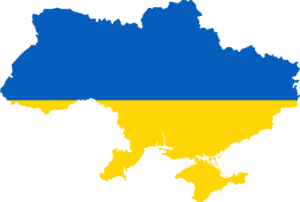Nearing the 10-week mark, the war in the eastern European country of Ukraine has spurned many in the entertainment industry to take action in matters they can control involving the invading nation, Russia. Netflix and other studio players since March have excluded Russian projects and releases from their film and series slates. Netflix suspended its streaming service in Russia, paused all productions, and halted acquisitions out of Russia. Pay TV providers Bell in Canada and Foxtel in Australia stopped transmitting Russian state-backed news channel RT (formerly Russia Today), which also had its license to broadcast revoked by European media regulator Ofcom in the UK. Data from Ampere Analysis on film commissioner offices in Europe shows 43% of the applied-for titles relating to the conflict in Ukraine are for entertainment purposes for fundraising, while those in countries like Poland and The Netherlands are directed towards refugees to help inform and acclimatize incoming residents from Ukraine.
Paramount suspended sales to Russian accounts (under Simon & Schuster) along with licensing of translation rights to Russian publishers and merchandising rights to consumer products manufacturers. Other efforts such as some content licensing and the general distribution of linear channels, will “take more time,” according to CEO Bob Bakish, who added, that Paramount will make a 1mm dollar donation to support relief efforts. Paramount, Warner Bros., Sony, Universal and Disney all pulled titles from distribution, like The Batman, Morbius, The Lost City, Sonic the Hedgehog 2, and Turning Red, to name a few. 2 of the top 3 film festivals, Festival de Cannes and Venice Biennale, both issued statements that they would not welcome any Russian delegates to attendees unopposed to Putin’s regime and the current government, and the European Film Academy will exclude Russian films for consideration for its 2022 European Film Awards.
In Europe, Central America, and Asia, directors of book fairs issued an open letter condemning the Russian invasion of Ukraine. The directors further invited all publishers and authors from Ukraine to exhibit in their fairs globally at no cost, citing their free expression and critical voices as a cherished aspect of such trade shows, where publishers, writers, agents, translators, and illustrators interact and engage. The directors finally suspended contact with Russian state institutions and agencies, closing access to their trade shows. Where books provide access to ideas and communities, the buildings which house them provide shelter to those seeking refuge. In Ukraine, public libraries were turned into shelters, running children’s sessions and activities, and play sessions for for small children in challenging circumstances. The Ukrainian library community mobilized to combat disinformation, in an effort to separate fact from fiction for affected communities. The Ukrainian Library Association represents 57,000 librarians and 33,000+ libraries across the country of Ukraine.




